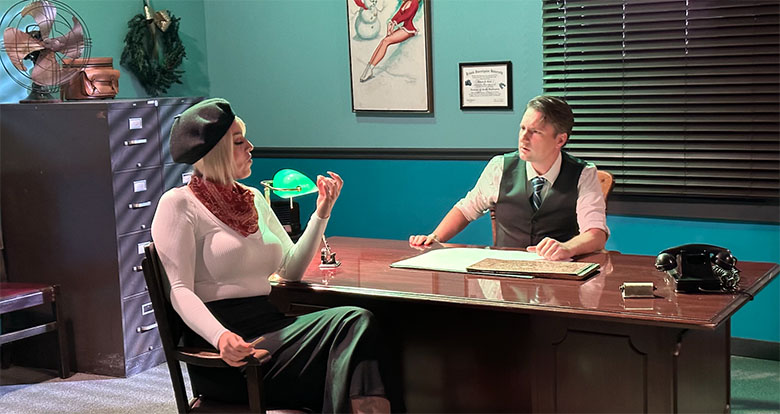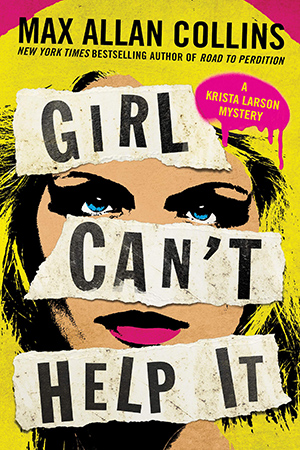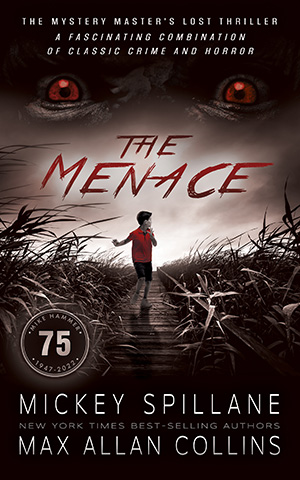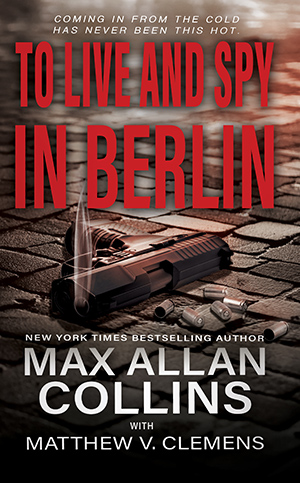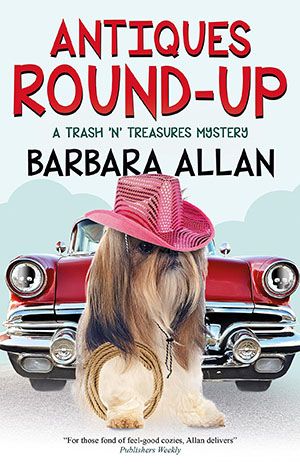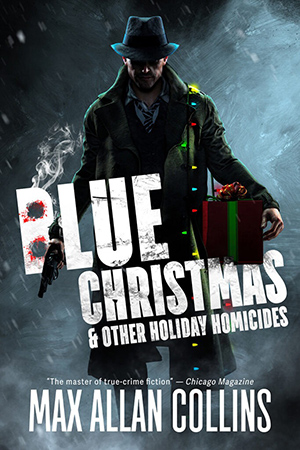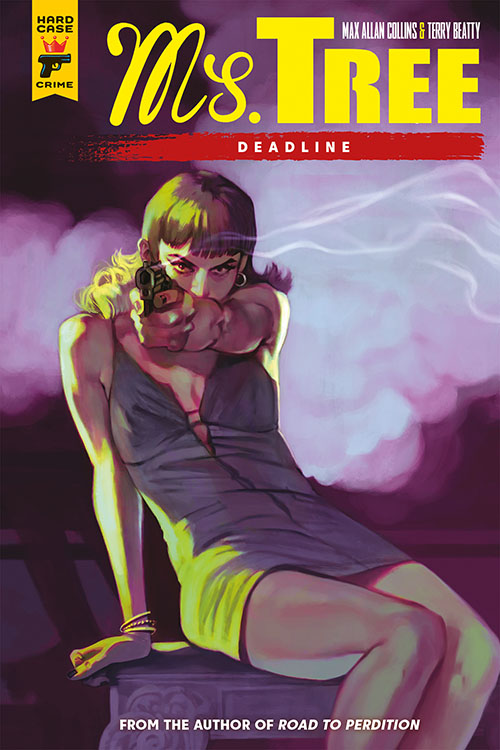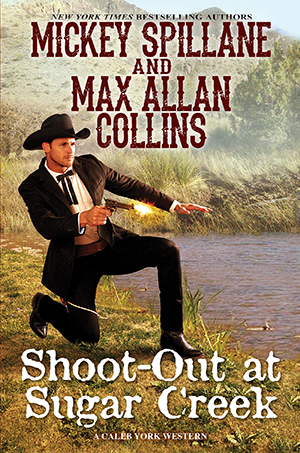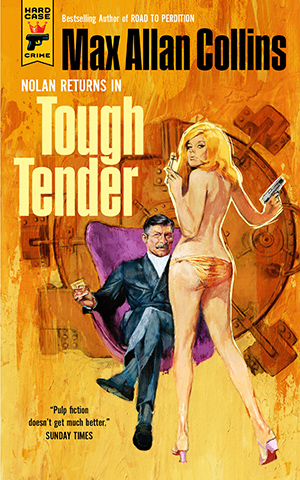It’s amazing! After my brief discussion/defense of the Ritz Brothers last time, fan clubs for the boys have sprung up all over America!
Okay, maybe not.
I’m just softening the blow that I’m not doing a book giveaway this week. Maybe next week. I am working on the new Nate Heller and found myself scrapping my intended final two sections and plotting instead one second section. This required re-reading a ton of research material and re-thinking it. I have been taxing my wife Barb’s patience utilizing her as a sounding board whose ideas and reactions are always helpful.
And how about that Super Bowl? Actually, as I write this, it hasn’t happened yet and I don’t care about it, so Barb and I will be going to the new Death on the Nile at a time when the theater should be largely empty.
* * *
Barb and I have now seen Death on the Nile (in an almost empty theater!) and we both found it a whipsawing experience. Kenneth Branagh’s version of Poirot is perfectly acceptable and often pays attention to detail courtesy of the Christie (and Suchet) characterizations; but he falls prey to an out-of-character attraction he has to a raucous blues singer, based on Sister Rosetta Tharpe, whose music is used throughout in a sometimes jarring way – where we should be getting a John Barry-esque score over the majestic Nile as backdrop to all this glitzy but murderous melodrama, we get guitar-driven blues (and a traditional soundtrack playing at a barely audible level, as if the theater left its Muzak going). I like guitar-driven blues, but as the soundtrack to Agatha Christie?
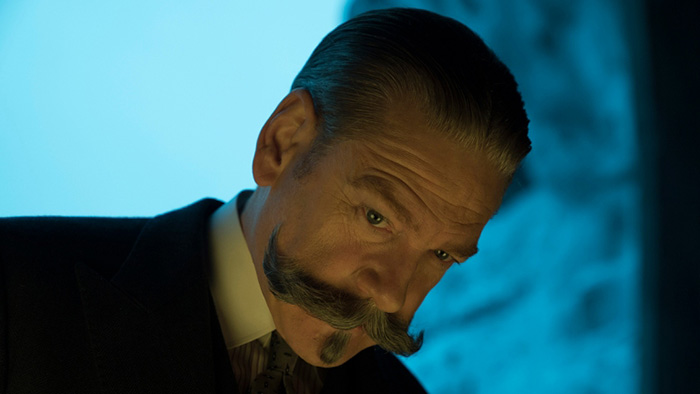
Though relatively faithful to Christie in general, the substitution of the blues singer and her manager/niece for the drunken romance novelist and her daughter seems at once forced modernity and a clumsy removal of a valid murder motive. A nice WW I origin story for Poirot and his mustache is followed by Poirot in 1937 going to a nightclub and sitting alone at a table watching over-choreographed lascivious dancing in quiet perverse contemplation – it’s a creepy sequence, turning the Belgian master detective into a raincoater in a porn-shop booth.
When the riverboat-board mystery kicks in, the cast proves less than star-studded (and filled, by accident of course, with cancelled or sort of cancelled celebrities of a few moments ago) though the direction is fine, save for circling cameras and other stunts during interrogation scenes that only detract from the importance of the information being gathered. When Branagh hews close to Christie, which he does about two-thirds of the time, his performance and the film itself are fine.
The biggest flaw is Gal Gadot playing the woman-stealing rich girl in a positive manner, not Lois Chile’s grasping, acquisitive proper murder victim of the superior 1978 version. And for all the emotion Branagh tries to stir up, no performance here touches ‘78’s Mia Farrow, the spurned woman of one of Dame Agatha’s most chillingly convoluted plots.
I’m glad to see Christie staying in the popular culture, although Covid and the mine field of who is cancelled by the time a film comes out has done this Poirot film no favors.
* * *
My discussion last week sparked quite a bit of response, after I revealed my negative opinion of a certain James Crumley first sentence, even while granting an I-hope-not-condescending-permission for others to like it. Some of those responses appeared in the previous Comments Section, but still others were sent to me by e-mail. One of the most interesting came in that fashion, and – with permission – I am sharing it here, so I can reply and perhaps have my response seen by more readers than if this had occurred in the Comments Section.
The following is excerpted from a missive courtesy of a reader who wishes to remain anonymous:
“
Your blog is your house. I think good discourse is important, but I also respect your site as your medium to transmit your message. No need to raise Cain in another man’s world. That said, I do like the Crumley line and state it here, privately. (NOTE FROM MAC: Privately until I got hold of it.)
“Perhaps it’s because, when my Dad was in the creative writing program in Montana, he met and drank with Jim (called some of his work mediocre too…you might have liked that!). Maybe it was the many ‘ramshackle joints’ like that one described that my Dad dragged us to as kids. Maybe it is because my college roommate was from Sonoma, who had an alcoholic father that just might have drank in the same bar. Maybe it is because I have never thought about a bulldog that was an alcoholic, much less an owner who would give him such a big name as ‘Fireball Roberts.’ Those all play, I’m sure, and made me want to know more. But, having lived on the Gulf Coast in my young adulthood, I know what it is like to ‘drink the heart right out of a fine spring afternoon.’ Maybe you can’t go back, but that sentence fragment brought me there for a short moment.”
My anonymous correspondent has made – or anyway implied – a point that I tried to make last time. It’s part of the overall concept of the reader as collaborator. I’ve discussed that my propensity for providing what some think is over-description (of clothing, or setting, etc.), and have tried to explain that this comes from my desire to be the in-charge half of the collaborative team.
First, I would like the reader to experience what I imagined, what I conjured, as close to the way I did. Second, I don’t think it should be the reader’s responsibility to do the writer’s work. Why should you have to clothe the damn characters? Why should they be allowed to run naked through the pages, unless it’s a sex scene or set in a nudist colony? Why should you have to describe the circumstances of where these fictional people live and put the flesh on the bones the stingy writer did not deign to provide?
Now I say this specifically in regard to my work. I don’t propose it as a schematic, or “rules,” other writers should follow. This approach reflects, as it has no choice other than to do, my way of seeing things. In the comments, one reader agreed with me about the overwriting in the Crumley line, then started quoting Elmore Leonard’s rules, most of which I disagree with…for me, not for Leonard. He was excellent at following his own rules and came up with something special…and his. I was a fan of Charles Webb, the little-known author of The Graduate, and he was the stingiest writer I ever encountered – he gave you nothing but the action and words of the piece, which may be why his famous novel became an even more famous movie…it was already almost a screenplay.
My anonymous correspondent’s comments about his dad, and the way his father related to bars and drinking (I am almost a non-drinker, despite the mimosa I had this morning), are him bringing himself to the party. He can’t help doing that any more than I can avoid bringing my opinions and personal history to the party. And neither of us should try otherwise. That’s where the collaboration between writer and reader becomes interesting.
It’s also why you can love a writer, and recommend that writer to a perfectly intelligent friend, and then have your own intelligence questioned by that friend because of your terrible taste in books. (This obviously also applies to movies and music.) That is why all reviews – mine included (see Death on the Nile above) – are essentially worthless…because none of us have the same experience when we read a book (or see a movie or listen to music).
You can tell somebody a book is great, but the truth is the version that person experiences will be at least somewhat different from yours, and probably a whole lot different. I have spent my life dueling with people who don’t like Mickey Spillane. I have very little respect for their intelligence. And they have very little respect for mine. Neither of us is wrong, at least not entirely.
The one area where I would disagree with my anonymous correspondent is a style issue. I don’t object to any of the things Crumley jams into the sentence (well, I think “Fireball Roberts” is a terminally cute name for a bulldog, and Abraham Trahearne is almost as bad for a human), it’s just the show-offy way he goes about it. It’s impossible (or difficult) (or maybe I’m just slow) to chug-a-lug all that one sentence’s information.
What I do like about that line is that it provides information even as it raises questions – that’s how many, perhaps most, good first sentences succeed. A good first sentence doesn’t require you to read it more than once to make sense of it, to process it, unless you think it’s a bad idea to pull your reader down immediately into the narrative and make forward progress.
This is a first sentence that I much admire:
“Later that summer, when Mrs. Penmark looked back and remembered, when she was caught up in despair so deep she knew there was no way out, no solution whatever for the circumstances that encompassed her, it seemed to her that June 7th, the day of the Fern Grammar School picnic, was the day of her last happiness, for never since then had she known contentment or felt peace.”
That’s plenty long, but you are right with it, and solid facts accompany cascading questions. It’s the first sentence of The Bad Seed by William March, and you can have your drunken bulldogs named Fireball What’s-It.
* * *
I can’t resist reprinting this great review of Tough Tender from Booklist.
Tough Tender.
By Max Allan Collins
Mar. 2022. Hard Case Crime, paper, $12.95 (9781789091434)
Collins’ Nolan series, starring the no-nonsense thief Nolan and his younger partner, comics crazed Jon, was written from the sixties into the eighties, but it had been largely unavailable for decades, until Hard Case Crime began reissuing the series as twofers under new titles. This is the third in that sequence, following Two for the Money (2021), and it combines Hard Cash and Scratch Fever. Nolan has no interest in robbing the same bank twice, but he’s blackmailed into doing so by the bank manager, who wants a share of the take this time. Naturally, it all goes crazy wrong. Scratch Fever picks up the story years later when Nolan and Jon encounter hairstylist-turned-entrepreneur Julie, who scammed them on the bank deal. Naturally, they’d like to get their money back, and just as naturally, Julie would like to get rid of them altogether. Collins displays his usual ability to round out the flat edges of what seem initially like stock genre characters, but he really outdoes himself with Julie, surely one of the most memorable femme fatales in hard-boiled fiction (“everything she touches turns to dead”).
— Bill Ott
And here is (incredibly enough) a really nice review of Double Down, another Nolan two-fer, from Kirkus.
Nolan also gets love at http://thebadnet.blogspot.com/, which gives me great pleasure, as it’s a site devoted to Lee Van Cleef. Scroll down when you get there (linger over the naked blonde if you like).
Finally, Road to Perdition gets a spot on this list of Best 21 books about the Mafia.
M.A.C.
